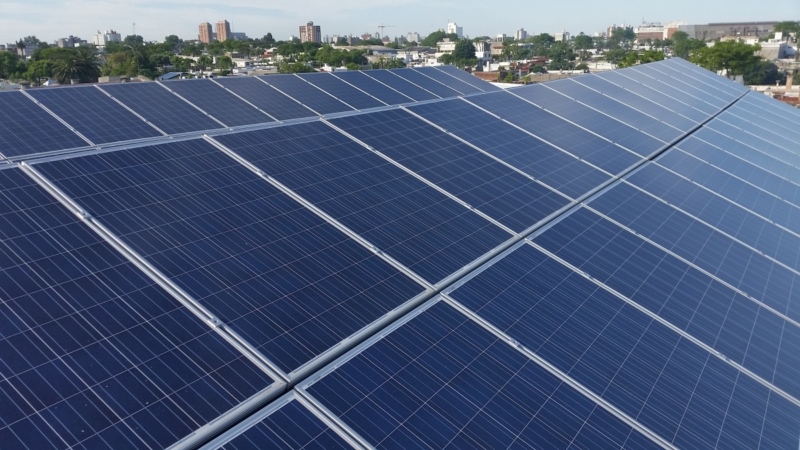Rising Brazil: The Choices Of A New Global Power
What should we expect from a newly powerful Brazil? Does the country have the capacity and leadership to be a central actor in addressing critical global and regional problems?
In an interview with The Science of Where Magazine, Lisa Viscidi, director of the Energy, Climate Change, and Extractive Industries Program, and Sarah Phillips, program assistant, discussed Latin America's progress toward the energy transition and its geopolitical implications.
Science of Where: The energy transition is one of the issues on which we focus most of our attention. Looking at Latin America, how do governments' positions differ on this issue?
Viscidi and Phillips: "In Latin America, numerous countries have been leaders in clean energy and made impressive progress toward the energy transition. Costa Rica, Uruguay, and Paraguay produce nearly 100 percent of their electricity from renewable sources. In a region where many economies depend on oil production and exports, Chile has been a leader in electric mobility, with the world’s largest fleet of electric buses outside of China. At the US-led Earth Day summit in April, Argentine President Alberto Fernández announced the country will once again up the ambition of its Nationally Determined Contribution and submit a plan next November in Glasgow to produce nearly one third of its electricity from renewable energy. President Duque reiterated Colombia’s recent commitment to a 51 percent emissions reduction by 2030, highlighting efforts in reforestation and clean power.
Brazil has more of a mixed record. The country has the world’s largest market for sugarcane based ethanol as a transportation fuel, and one of the cleanest energy matrices in the world, including substantial installed capacity of not only hydroelectric power but also wind energy. President Jair Bolsonaro recently announced his most ambitious climate goals yet at the US-led Earth Day climate summit, pledging to achieve carbon neutrality by 2050 and eliminate illegal deforestation by 2030. However, his government has a poor record on conservation and his promise to double conservation enforcement funds was contradicted soon after when he signed off on a budget that did not include his spending pledge.
Finally, Mexico, once known as an environmental leader in the region, has rolled back climate ambition. Following the 2013 energy reform, Mexico became an attractive market for private players looking to invest in renewables. Since 2018 however, Mexican President Andrés Manuel López Obrador (known by his initials, AMLO) has favored a nationalistic energy strategy and enacted policy and regulatory changes that block private investment, which has been key to developing renewables in the country. As a result, Mexico will probably not meet its clean energy targets."
Science of Where: The geopolitics of energy is a determining factor in international relations. What is the situation in Latin America? How do energy issues cross the political and institutional dynamics of states? Who are the main foreign players and what role do they play?
Viscidi and Phillips: "In Latin America, the two great geopolitical rivals, the United States and China, are vying for markets and influence in the energy sector, particularly in the growing area of clean energy technology.
China is a top provider of electric buses, solar panels, and other clean technologies in Latin America. It has also been an important player more broadly in energy and mining for the last decade through oil-backed loans and equity investments. Since 2005, Chinese state-owned banks have lent more than $136 billion to Latin America.
The United States, also a major player in the region’s energy sector, has recently tried to respond to Chinese influence in the region by catalyzing private investment in energy and infrastructure through the Development Finance Corporation (DFC), which was formed by a congressional law passed during the Trump administration. The DFC has several important new capabilities, including a higher total investment limit ($60 billion as opposed to its predecessor's $29 billion), an increased emphasis on inter-agency cooperation, more flexibility to work with non-US companies, authority for equity financing, and the ability to provide loans and guarantees in local currency to shield investors from currency exchange risk. President Biden has promised to promote green jobs and industry and supplant China as the world’s leading clean technology provider. Biden’s ambitious climate foreign policy agenda offers an opportunity to help countries in the region meet their clean energy targets while simultaneously fulfilling Washington’s goals of strengthening its geopolitical position relative to China’s."
[…]
What should we expect from a newly powerful Brazil? Does the country have the capacity and leadership to be a central actor in addressing critical global and regional problems?
President Lula da Silva triumphantly announced that he and his Turkish counterpart had persuaded Iran to shift a major part of its uranium enrichment program overseas—an objective that had previously eluded the US and other world powers. Washington, however, was not applauding.
In the past year, the Bolivian government has emerged as an outspoken critic of climate change policies.
 Pxhere / CC0
Pxhere / CC0